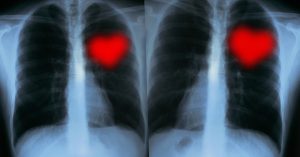Everything You Need to Know About Stress Tests
If you have symptoms of chest pain or shortness of breath, a cardiologist may recommend that you undergo a stress test. In this article, the best cardiologist in Tampa will discuss the process a patient experiences when they participate in an exercise-based stress test. For heart care, consider consulting Ascent Cardiology Group.
What’s a Stress Test?
Although there are a variety of ways a stress test can be performed, most stress tests are conducted by having the patient walk on a treadmill or ride a stationary bike. For a treadmill-based stress test, the patient will begin the test by slowly walking on the treadmill. Over the course of 15 minutes, their workout will slowly ramp up as their heart rate increases over the course of the exercise. Generally, a stress test will begin with slow walking on level ground and eventually build up to a light jog.
During a stress test, a patient will be hooked up to electrocardiogram (ECG) monitors that measure the rhythm of their heart. While the patient is exercising during a stress test, the cardiologist will assess the patient’s heart rate, breathing, blood pressure, energy level, whether or not they show signs of discomfort, and other factors related to their heart condition. A doctor may request additional heart-related tests to be performed in conjunction with a stress test, including imaging tests to help determine if there’s a heart condition.
During a stress test, a patient will be hooked up to electrocardiogram (ECG) monitors that measure the rhythm of their heart. While the patient is exercising during a stress test, the cardiologist will assess the patient’s heart rate, breathing, blood pressure, energy level, whether or not they show signs of discomfort, and other factors related to their heart condition. A doctor may request additional heart-related tests to be performed in conjunction with a stress test, including imaging tests to help determine if there’s a heart condition.
Understanding the Process
Stress tests are a relatively pain-free and noninvasive way for a cardiologist to assess the heart and any potential complications. Although stress tests are relatively safe, patients should be mindful that there are minimal risks associated with stress tests. It’s critical that you speak to your doctor about any heart-related symptoms you are experiencing before undergoing a stress test or any form of vigorous physical activity.
Here are a few tips for patients that elect to participate in a stress test:
Prepping: generally, there are certain requirements patients need to follow in order to participate in a stress test, including avoiding caffeine for at least the day of the stress test. Consult a cardiologist to learn more about what you can eat and drink before undergoing a stress test and the expectations of the test.
Dress Right: Considering that a stress test requires up to 15 minutes of exercise, patients should dress comfortably in sweatpants, sneakers, and other forms of athletic apparel.
Communicate With Your Doctor: it’s critical that patients effectively communicate with their doctor before, during, and after a stress test.
Before a test, a patient should be completely transparent with their doctor about their medical history.
During a stress test, if you feel you are developing heart-related symptoms, notify your doctor and stop exercising immediately.
Final Things to Consider: Once the best cardiologist in Tampa has assessed your medical condition using an evidence-based approach, they will provide you with your results and a treatment plan. Depending on your heart care needs, a cardiologist may provide you with goals to improve your heart health, notify you of any risks, or provide you with alternative options to treat a heart condition.
Here are a few tips for patients that elect to participate in a stress test:
Prepping: generally, there are certain requirements patients need to follow in order to participate in a stress test, including avoiding caffeine for at least the day of the stress test. Consult a cardiologist to learn more about what you can eat and drink before undergoing a stress test and the expectations of the test.
Dress Right: Considering that a stress test requires up to 15 minutes of exercise, patients should dress comfortably in sweatpants, sneakers, and other forms of athletic apparel.
Communicate With Your Doctor: it’s critical that patients effectively communicate with their doctor before, during, and after a stress test.
Before a test, a patient should be completely transparent with their doctor about their medical history.
During a stress test, if you feel you are developing heart-related symptoms, notify your doctor and stop exercising immediately.
Final Things to Consider: Once the best cardiologist in Tampa has assessed your medical condition using an evidence-based approach, they will provide you with your results and a treatment plan. Depending on your heart care needs, a cardiologist may provide you with goals to improve your heart health, notify you of any risks, or provide you with alternative options to treat a heart condition.
To consult the top cardiologists in Tampa Bay from Ascent Cardiology Group, please request an appointment today.
Disclaimer: The contents of this website are for general educational purposes only. All content and media on the Ascent Cardiology Group website does not constitute professional medical advice nor is the information intended to replace the services of Ascent Cardiology Group or other qualified medical professionals. If you believe you are having a medical emergency, call 911 immediately.
The content, views, and opinions communicated on this website do not represent the views of Ascent Cardiology Group. Reliance on any information provided by this website is solely at your own risk. Although this website contains links to other medical websites, this is strictly for informational purposes. Ascent Cardiology Group is not responsible nor do they approve of the content featured on any third party linked websites referenced on this website.
The content, views, and opinions communicated on this website do not represent the views of Ascent Cardiology Group. Reliance on any information provided by this website is solely at your own risk. Although this website contains links to other medical websites, this is strictly for informational purposes. Ascent Cardiology Group is not responsible nor do they approve of the content featured on any third party linked websites referenced on this website.
More Resources

Stress and Heart Disease: What You Can Do to Improve Your Heart Health
Working long hours, filling up free time, and taking on additional responsibilities is a way of life for Type A

What is Nuclear Cardiology?
Nuclear cardiology is a subspeciality of general cardiology that involves the use of radioactive substances and advanced medical imaging modalities

Coronary Heart Disease: What Is It and How Is It Treated?
In addition to being the most common type of heart disease, coronary heart disease is the deadliest. In fact, it’s